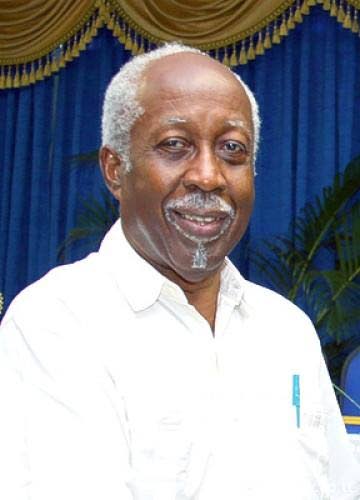Afghan callaloo

REGINALD DUMAS
Pt I
I’M SURE US President Biden has never heard of a bobolee, but after the public reaction to the recent chaotic, heart-rending scenes (including horrific deaths) at Kabul airport, he must now be an expert on what it feels like to be one. His image and reputation, and those of America, have been taking a severe beating. The frantic US retreat from Saigon in 1975, for those old enough to remember, comes irresistibly to mind, as does the maxim: how you say and do things is often more important than what you say and do. And, as in 1975, US handling of the exodus, displayed internationally, was a bungled embarrassment.
Biden has of course taken responsibility for events, even if he was not personally involved in the botched departure arrangements; the buck stops with him, as he rightly told us. Donald Trump, the self-proclaimed legitimate US president, has called on him to resign, carefully neglecting to mention that it was his administration which in February 2020 signed a peace agreement with the Taliban. That agreement “committed” (the word used) the US “to withdraw from Afghanistan all military forces of the (US), its allies, and coalition partners…within fourteen months following announcement of (the) agreement…”
Not fully in accordance with that timeline, Biden was nonetheless adhering to the overall agreement. But once again, how you say and do things is often more important than what you say and do. For several days we all could see the Taliban running through Afghanistan like a hot knife through butter, so what was the point in sitting and expressing surprise at the speed of their progress? What emergency action was being taken to deal with this rapid advance? Was there a contingency plan? Where was the effective management?
It isn’t only absence or mishandling of a solid exit plan. There’s the history of foreign intervention in Afghanistan, which appears to have been conveniently ignored – if indeed it was recognised to exist. But what was the fate of the British after three Anglo-Afghan wars, two in the 19th century and the third in the 20th? What was the fate of the Soviets, who occupied the country from 1979 to 1989? Why, despite these eventually failed adventures, might it have been believed in NATO that Washington and Western Europe, even after 20 years of presence in – I shall not say “occupation of” – Afghanistan, would be successful?
To history one must add culture. Everyone marvelled at the Taliban’s lightning-quick takeover of province after province. But why marvel? Afghanistan’s vast rural areas are socially and religiously conservative, and the Taliban’s fundamentalist ideology, so different from the now Western-influenced cellphone sophistication of the cities, is a zone in which they find comfort. (And even conservatives, many of them warlords, don’t sniff at financial arrangements.)
Culture isn’t confined to conservatism, religious or other. A recent Washington Post article by Craig Whitlock, who will shortly be bringing out a book on the Afghan war, speaks of a darker side: “a corrupt chain of command that preyed upon its own soldiers and police;” a revenge mentality; tribal and clan rivalries, etc.
And to compound everything, there was an extraordinarily high illiteracy and innumeracy rate. Whitlock quotes a retired US army officer: “You’d ask an Afghan soldier how many brothers and sisters they had and they couldn’t tell you it was four. They could tell you their names, but they couldn’t go ‘one, two, three, four.’”
There were also “startling rates of desertion,” Whitlock writes. Perhaps we can now better understand why the erstwhile president, Ashraf Ghani, fled so precipitously – “to avoid more bloodshed,” he explained. He must have meant his blood.
Whitlock also makes the damning charge that the shortcomings of the Afghan military were well known to the American military. Yet in public the Americans would brag about how well the Afghan forces were doing; I make no comment on their motives. In 2011, for instance, Gen William Caldwell, head of the US and NATO training command in Afghanistan, described the local forces as “probably the best-trained, the best-equipped and the best-led of any…we’ve developed yet in Afghanistan. They only continue to get better with time.” Ten years later, the “best-trained,” abandoning their weapons, would outsprint time at the first inkling of a Taliban approach.
In 2013 Gen Mark Milley also gave the thumbs-up to the Afghan security forces. Milley is now chairman of the US Joint Chiefs of Staff and Biden’s chief military adviser.
The US Secretary of State, Antony Blinken, was rueful: Afghan forces “proved incapable of defending the country. And that did happen more rapidly than we anticipated.” So incapability was anticipated, was it? Interesting.
But what did Biden say? I shall come to that next.


Comments
"Afghan callaloo"